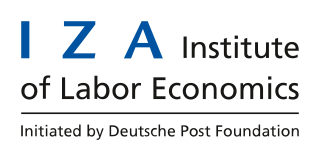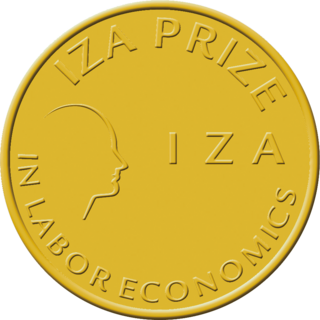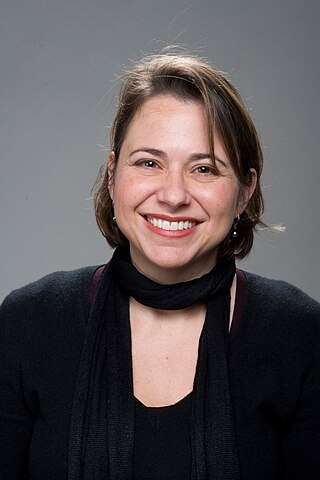Related Research Articles

White flight or white exodus is a term that insinuates racial motivation for sudden or gradual large-scale migration of white people from areas simultaneously gaining population of other racial groups. Starting in the 1950s and 1960s, the terms became popular in the United States. They referred to the large-scale migration of people of various European ancestries from racially mixed urban regions to more racially homogeneous suburban or exurban regions. The term has more recently been applied to other migrations by whites, from older, inner suburbs to rural areas, as well as from the American Northeast and Midwest to the milder climate in the Southeast and Southwest. The term 'white flight' has also been used for large-scale post-colonial emigration of whites from Africa, or parts of that continent, driven by levels of violent crime and anti-colonial or anti-white state policies.

Jeremiah Whipple Jenks (1856–1929) was an American economist, educator, and professor at Cornell University, who held various posts in the United States government throughout his career. He served as a member of the Dillingham Immigration Commission from 1907 to 1914 in which he led research projects on the state of immigration to the US.

Immigration is the international movement of people to a destination country of which they are not usual residents or where they do not possess nationality in order to settle as permanent residents. Commuters, tourists, and other short-term stays in a destination country do not fall under the definition of immigration or migration; seasonal labour immigration is sometimes included, however.

The IZA - Institute of Labor Economics, until 2016 referred to as the Institute for the Study of Labor (IZA), is a private, independent economic research institute and academic network focused on the analysis of global labor markets and headquartered in Bonn, Germany.

Claudia Dale Goldin is an American economic historian and labor economist. She is the Henry Lee Professor of Economics at Harvard University. In October 2023, she was awarded the Nobel Memorial Prize in Economic Sciences "for having advanced our understanding of women's labor market outcomes”. She was the third woman to win the award, and the first woman to win the award solo.

In the context of the 20th-century history of the United States, the Second Great Migration was the migration of more than 5 million African Americans from the South to the Northeast, Midwest and West. It began in 1940, through World War II, and lasted until 1970. It was much larger and of a different character than the first Great Migration (1916–1940), where the migrants were mainly rural farmers from the South and only came to the Northeast and Midwest.

The Institute for the Study of Labor awards a prize each year for outstanding academic achievement in the field of labor economics. The IZA Prize in Labor Economics has become a highly prestigious science award in international economics, is the only international science prize awarded exclusively to labor economists and is considered the most important award in labor economics worldwide. The prize was established in 2002 and is awarded annually through a nomination process and decided upon by the IZA Prize Committee, which consists of internationally renowned labor economists. As a part of the prize, all IZA Prize Laureates contribute a volume as an overview of their most significant findings to the IZA Prize in Labor Economics Series published by Oxford University Press.
Jeffrey Gale Williamson is the Laird Bell Professor of Economics (Emeritus), Harvard University; an Honorary Fellow in the Department of Economics at the University of Wisconsin (Madison); Research Associate at the National Bureau of Economic Research; and Research Fellow for the Center for Economic and Policy Research. He also served (1994–1995) as the president of the Economic History Association. His research focus is and has been on comparative economic history and the history of the international economy and development. Economist Hilary Williamson Hoynes is his daughter.

Francine Dee Blau is an American economist and professor of economics as well as Industrial and Labor Relations at Cornell University. In 2010, Blau was the first woman to receive the IZA Prize in Labor Economics for her "seminal contributions to the economic analysis of labor market inequality." She was awarded the 2017 Jacob Mincer Award by the Society of Labor Economists in recognition of lifetime of contributions to the field of labor economics.
Phyllis A. Wallace was an American economist and activist, as well as the first woman to receive a doctorate of economics at Yale University. Her work tended to focus on racial, as well as gender discrimination in the workplace.She mentored many students and colleagues.

Anne Catherine Case, Lady Deaton, is an American economist who is currently the Alexander Stewart 1886 Professor of Economics and Public Affairs, emeritus, at Princeton University.
Garance Genicot is a Belgian-American economist and associate professor of economics at Georgetown University. She is a member of the Core Group at Theoretical Research in Development Economics (ThReD), a research associate at the National Bureau of Economic Research (NBER) Development Economics Program, a research associate at the Center for Economic and Policy Research (CPER) in both the Political Economy Program and in the Development Economics Program, a Fellow at the Bureau for Research and Economic Analysis of Development (BREAD) and a research fellow at the IZA Institute. From 2013 to 2018, she served as an External Member of the World Bank Research Management Committee. A more detailed overview of her work can be found on RePEc., Research Papers in Economics.

Sandra Eilene Black is a Professor of Economics and International and Public Affairs at Columbia University. She received her B.A. from UC Berkeley and her Ph.D. in economics from Harvard University. Since that time, she worked as an economist at the Federal Reserve Bank of New York, and as an assistant, associate, and ultimately full professor in the Department of Economics at UCLA before arriving at the University of Texas at Austin in 2010. She is currently a research associate at the National Bureau of Economic Research (NBER), a research affiliate at IZA Institute of Labor Economics, and a nonresident senior fellow at Brookings Institution. She served as a Member of Barack Obama’s Council of Economic Advisers from August 2015 to January 2017.
Adriana Lleras-Muney is a Colombian-American economist. She is currently a professor in the Department of Economics at UCLA. She was appointed as Associate Editor for the Journal of Health Economics in 2014, and she was elected as one of the six members of the American Economic Association Executive committee in 2018. Her research focuses on socio-economic status and health with a particular emphasis on education, income, and economic development. In 2017, she was received the Presidential Early Career Awards for Scientists and Engineers from President Obama.
Lisa Blau Kahn is a professor of economics at the University of Rochester. Her research focuses on labor economics with interests in organization, education, and contract theory. From 2014 to 2018, she served as an associate professor of economics at Yale School of Management and as an assistant professor of economics at Yale School of Management from 2008 to 2014. From 2010 to 2011, Kahn served as the senior economist for labor and education policy on President Obama's Council of Economic Advisers.
Xin Meng is a Chinese economist and professor at the Research School of Economics, College of Business and Economics (CBE), Australian National University (ANU). She is also a member of the Association for Comparative Economic Studies, the American Economic Association, the Society of Labor Economics and Royal Economic Society. Her main research interests include Labour Economics, Development Economics, Applied Microeconomics and Economics of Education. She focuses on researching issues about the Chinese labour market during transition, the influence of corporations and gender discrimination, the economic assimilation of immigrants and the economic implications of major catastrophes. Meng was elected a Fellow of the Academy of the Social Sciences in Australia in 2008.
Elizabeth Cascio is an applied economist and currently a Professor of Economics who holds the DeWalt H. 1921 and Marie H. Ankeny Professorship in Economic Policy at Dartmouth College. Her research interests are in labor economics and public economics, and focus on the economic impact of policies affecting education in the United States. She is also a research associate at the National Bureau of Economic Research, a research associate at the IZA Institute of Labor Economics, and Co-editor of the Journal of Human Resources.
Catalina Amuedo-Dorantes is a Spanish economist, a Professor in the Economics and Business Management faculty at the University of California, Merced and a Professor and Department Chair at San Diego State University. Since 2015, she has been the Western Representative for a standing committee called the Committee for the Status of Women in the Economics Profession (CSWEP). Her field of work focuses on the fundamentals of labour economics and international migration, particularly the nature of immigration policies and its impact on migrant's assimilation into the community at a state and local level. Amuedo-Dorantes has published multiple articles in refereed journals including Journal of Public Economics, Journal of Population Economics, International Migration, and Journal of Development Economics.
Maria Lucia Yanguas is an economics consultant at Cornerstone Research in Washington, DC. Originally from Argentina, Yanguas’ native language is Spanish. She is bilingual in English, and also has basic skills in French, Portuguese, and Italian. Her research focuses in the areas of Urban Economics, Labor Economics, Economic History, and Development Economics.
Immigration to the United States has many effects on the culture and politics of the United States.
References
- ↑ "Leah Platt Boustan". The Conversation. Retrieved 2018-10-12.
- ↑ "NBER Reporter: 2013 Number 1 Profiles". www.nber.org. Retrieved 2018-10-12.
- ↑ "Leah Platt Boustan". inequality.hks.harvard.edu. Retrieved 2018-10-12.
- ↑ "Leah Boustan | Industrial Relations Section". irs.princeton.edu. Retrieved 2018-10-12.
- ↑ Boustan, Leah Platt (2016-10-25). Competition in the Promised Land: Black Migrants in Northern Cities and Labor Markets. Princeton University Press. ISBN 9781400882977.
- ↑ "2018 Prizes Awarded at Annual Meeting". eh.net. Retrieved 2018-10-12.
- ↑ "Young Labor Economist Award | IZA - Institute of Labor Economics". www.iza.org. Retrieved 2019-05-13.
- ↑ Van Dam, Andrew (April 4, 2019). "What Southern dynasties' post-Civil War resurgence tell us about how wealth is really handed down". The Washington Post.
- ↑ "Books". scholar.princeton.edu. Retrieved 2021-01-12.
- ↑ Boustan, Leah Platt; Frydman, Carola; Margo, Robert A. (2014). Human Capital in History. University of Chicago Press. doi:10.7208/chicago/9780226163925.001.0001. ISBN 978-0-226-16389-5.
- ↑ "Research". scholar.princeton.edu. Retrieved 2021-01-13.
- 1 2 lmonnens (2018-12-02). "Fact-checking Immigration: Professor Leah Boustan uses big data to explore myths about the past". Discovery: Research at Princeton. Retrieved 2021-01-13.